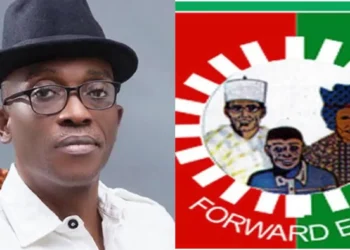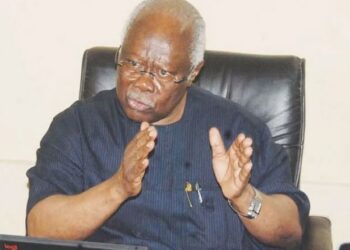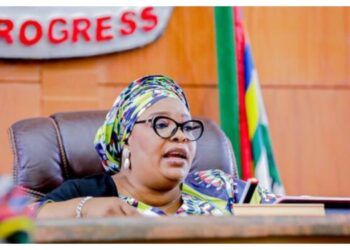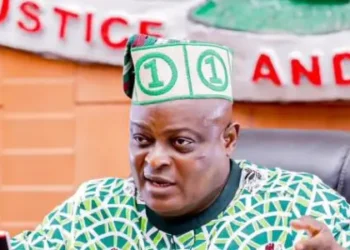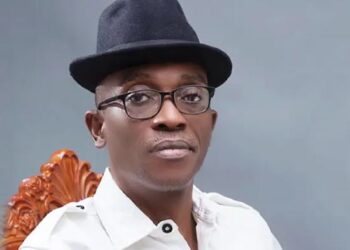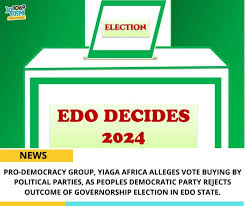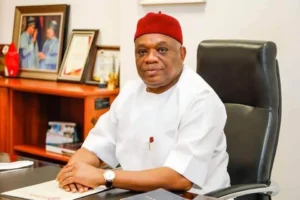The presidential candidate of the Labour Party (LP), Mr. Peter Obi, did not win enough votes to make him president, Peoples Democratic Party (PDP) candidate Atiku Abubakar said yesterday.
The duo were contenders in last Saturday’s presidential election that was won by Asiwaju Bola Ahmed Tinubu of the All Progressives Congress (APC).
Obi got 6, 101,533 from the 36 states of the federation and the Federal Capital Territory (FCT). But, the biggest of the votes – 1,960,589 – were secured in the Southeast states of Abia, Anambra, Ebonyi, Enugu and Imo.
The other states won by the LP candidate outside of his Southeast zone are Lagos, Plateau and Cross River, Edo, Delta and Nasarawa.
But the LP candidate lacks the required spread to clinch the presidency. Obi did not win in any of the Northeast and Northwest states.
Atiku, who spoke at a news conference in Abuja yesterday, admitted that Obi and his LP depleted significant number of votes that would have been won by the PDP, if he had not defected from the PDP.
According to him, it was the action of the PDP governors that chased Obi out of the PDP, saying that the governors had insisted on producing the party’s presidential candidate, vice presidential candidate and Chief of Staff to the president during deliberations before nominations began.
Atiku said: “Obi took our votes in the Southeast and the Southsouth but that alone cannot make him president. We are ready to dialogue with Obi with a view to forming an alliance.
“Obi was in a rush before the primaries. The PDP governors insisted that they must produce the president, vice president and Chief of Staff among their ranks.
“Peter (Obi) got scared and left the PDP. But, I stood my ground against the governors and fought my way through and got the PDP ticket. If Obi had stayed back, perhaps I would have picked him as my running mate.”
The PDP candidate said he will challenge the outcome of the presidential election in court.
Atiku said the elections were flawed and therefore must be challenged.
He disclosed that the counsel were already studying the outcome of the poll.
The PDP candidate expressed confidence in the nation’s judiciary, saying that he had no cause to doubt that he will get justice at the courts.
Atiku recalled how he instituted a total of 11 cases against former President Olusegun Obasanjo when he served as vice president under him from 1999 to 2007.
The PDP flagbearer said: “I took my former boss to court 11 times and I got judgement against a sitting President in all the cases. In all the 11 trials from the high court to the Supreme Court, I never saw any of the judges that handled the cases.”
When he was asked if he still has confidence in the judiciary under the present administration, Atiku said he would not preempt the judiciary ahead of his upcoming litigation.
“I cannot say anything about the nature or character of the judges when I have not approached the court yet, he said.
On what he would do if he loses his case, Atiku said: “If I don’t get judgement, I will take my case to God.”
In a speech he read at the briefing, Atiku alleged irregularities in the conduct of the presidential election, a development he said, robbed him of victory.
He said: “The dreams and aspirations of Nigerians who braced all the challenges to go and cast their votes on Saturday, 25th of February, 2023, were shattered by the conduct of the INEC, which failed to live up to expectations.
He went on: “Having consulted with leaders of our party and Nigerians from different walks of life, I have come to the conclusion that the processes and outcome of the Presidential and National Assembly election of last Saturday was grossly flawed in every material particular, and as such must be challenged.
“This battle to right the wrongs of Saturday is not about me. It is a continuation of my battles to deepen democracy and for a better life for our people. It is about the future of Nigerian youths.
“It is my hope that the judiciary will redeem itself this time around and rise to the society’s expectation as the last HOPE. In the end, who wins is not as important as the credibility of our elections and electoral processes”.

